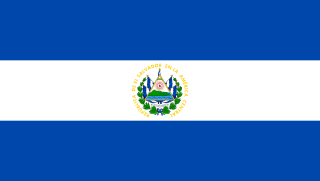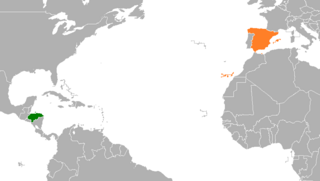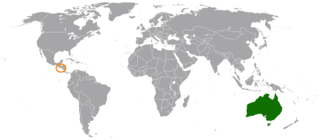
El Salvador, officially the Republic of El Salvador, is a country in Central America. It is bordered on the northeast by Honduras, on the northwest by Guatemala, and on the south by the Pacific Ocean. El Salvador's capital and largest city is San Salvador. The country's population in 2023 was estimated to be 6.5 million.

This is a demography of the population of El Salvador including population density, ethnicity, education level, health of the populace, economic status, religious affiliations and other aspects of the population.

The economy of El Salvador has experienced relatively low rates of GDP growth, in comparison to other developing countries. Rates have not risen above the low single digits in nearly two decades – part of a broader environment of macroeconomic instability which the integration of the United States dollar has done little to improve. One problem that the Salvadoran economy faces is the inequality in the distribution of income. In 2011, El Salvador had a Gini Coefficient of .485, which although similar to that of the United States, leaves 37.8% of the population below the poverty line, due to lower aggregate income. The richest 10% of the population receives approximately 15 times the income of the poorest 40%.

Alfredo Félix Cristiani Burkard is a Salvadoran politician who was President of El Salvador from 1989 to 1994.

Salvadorans, also known as Salvadorians, are citizens of El Salvador, a country in Central America. Most Salvadorans live in El Salvador, although there is also a significant Salvadoran diaspora, particularly in the United States, with smaller communities in other countries around the world.

According to the 2012 U.S. Global Leadership Report, 55% of Salvadorans approve of U.S. leadership, with 19% disapproving and 26% uncertain, the fourth-highest rating for any surveyed country in the Americas. In 2013 and 2014, according to the Pew Research Center's global attitudes survey 79% and 80% of Salvadorans viewed the United States positively respectively revealing El Salvador as one of the most pro-American nations in the world.

Diplomatic relations between Switzerland and the United States were established in 1853 by the U.S. and in 1868 by Switzerland. The first diplomatic representation of the U.S. was established in Basel in 1853.

El Salvador–Uruguay relations refers to the diplomatic relations between the Republic of El Salvador and the Oriental Republic of Uruguay. Both nations are members of the Community of Latin American and Caribbean States, Group of 77, Organization of American States, Organization of Ibero-American States and the United Nations.

The nations of El Salvador and Mexico established diplomatic relations in 1838. Both nations are members of the Association of Caribbean States, Community of Latin American and Caribbean States, Organization of American States, Organization of Ibero-American States and the United Nations.

The nations of Honduras and Mexico established diplomatic relations in 1879. Both nations are members of the Association of Caribbean States, Community of Latin American and Caribbean States, Organization of American States, Organization of Ibero-American States and the United Nations.
A German Salvadoran is a Salvadoran descendant of German citizens who have adopted the two nationalities or Salvadorans who have German ancestry, there is a record of waves of German immigrants since the 19th century, later with the arrival of German refugees during the Second World War. El Salvador has important relations with Germany

El Salvador–India relations refers to the international relations that exist between El Salvador and India. El Salvador maintains an embassy in New Delhi and an honorary consulate in Bangalore. The Embassy of India in Guatemala is jointly accredited to El Salvador. India also maintains an honorary consulate in San Salvador.

El Salvador–Spain relations are the current and historical relations between El Salvador and Spain. Both nations are members of the Association of Academies of the Spanish Language, Organization of Ibero-American States and the United Nations.

Honduras–Spain relations are the diplomatic relations between Honduras and Spain. Both nations are members of the Association of Academies of the Spanish Language and the Organization of Ibero-American States.
Anita Cristina Escher Echeverría is a diplomat from El Salvador.

Diplomatic relations between Canada and El Salvador were established in 1961. Both nations are members of the Organization of American States and the United Nations.

El Salvador–France relations are the current and historical relations between the Republic of El Salvador and the French Republic. Both nations are members of the United Nations.

Current and historical relations exist between the Commonwealth of Australia and the Republic of El Salvador. Both nations enjoy friendly relations, the importance of which centers on the arrival of Salvadoran refugees to Australia during the Salvadoran Civil War. There is a community of approximately 20,000 people of Salvadoran origin in Australia. Australia is home to the third largest Salvadoran community living abroad. Both nations are members of the Forum of East Asia–Latin America Cooperation and the United Nations.
Anarchism in El Salvador reached its peak during the labour movement of the 1920s, in which anarcho-syndicalists played a leading role. The movement was subsequently suppressed by the military dictatorship before experiencing a resurgence in the 21st century.














